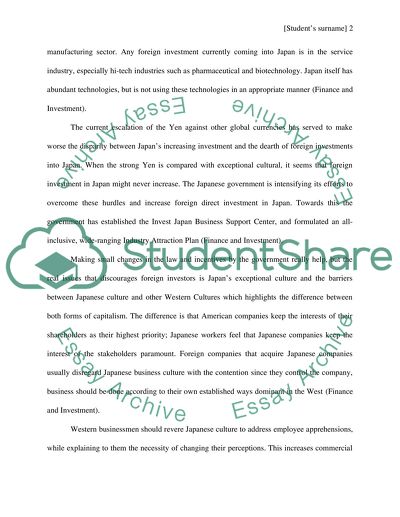Cite this document
(“Foreign Direct Investment in Japan Assignment Example | Topics and Well Written Essays - 1000 words”, n.d.)
Foreign Direct Investment in Japan Assignment Example | Topics and Well Written Essays - 1000 words. Retrieved from https://studentshare.org/finance-accounting/1467872-foreign-direct-investment-in-japan
Foreign Direct Investment in Japan Assignment Example | Topics and Well Written Essays - 1000 words. Retrieved from https://studentshare.org/finance-accounting/1467872-foreign-direct-investment-in-japan
(Foreign Direct Investment in Japan Assignment Example | Topics and Well Written Essays - 1000 Words)
Foreign Direct Investment in Japan Assignment Example | Topics and Well Written Essays - 1000 Words. https://studentshare.org/finance-accounting/1467872-foreign-direct-investment-in-japan.
Foreign Direct Investment in Japan Assignment Example | Topics and Well Written Essays - 1000 Words. https://studentshare.org/finance-accounting/1467872-foreign-direct-investment-in-japan.
“Foreign Direct Investment in Japan Assignment Example | Topics and Well Written Essays - 1000 Words”, n.d. https://studentshare.org/finance-accounting/1467872-foreign-direct-investment-in-japan.


